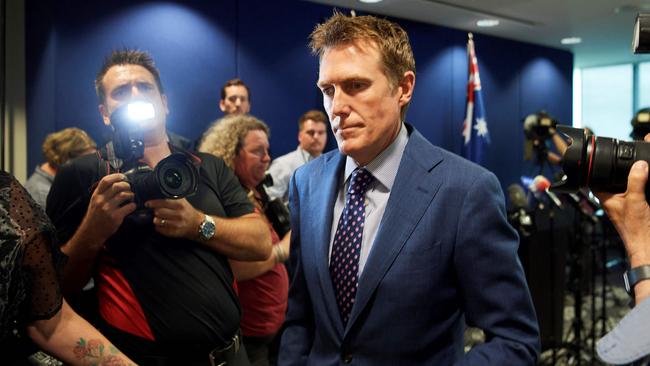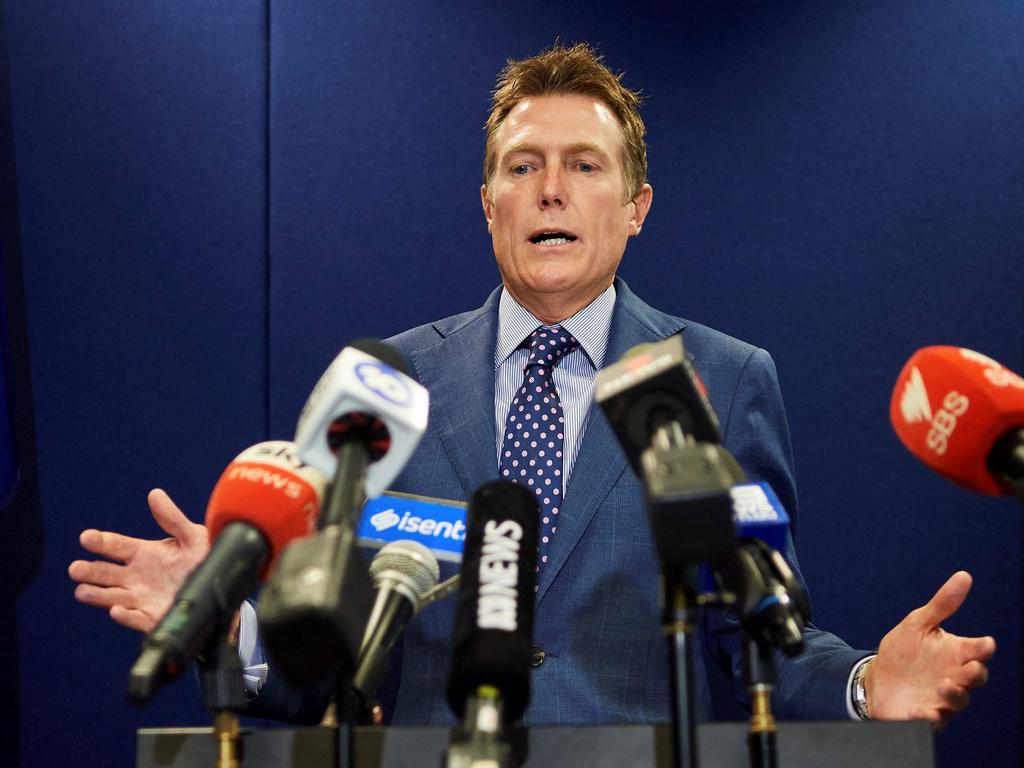Christian Porter case puts spotlight on social media double standards
They say that in the world of politics — as in the world of celebrity — the only thing worse than being talked about is not being talked about.

They say that in the world of politics — as in the world of celebrity — the only thing worse than being talked about is not being talked about.
Christian Porter might beg to disagree.
In the lead-up to last Wednesday’s extraordinary press conference, at which the Attorney-General outed himself as the cabinet minister at the centre of a historical rape allegation, Mr Porter’s hitherto modest profile on social media exploded overnight.
On Saturday, February 27 — the day after the ABC published a story that revealed that Prime Minister Scott Morrison had been sent a letter detailing a rape allegation levelled against one of his 16 male cabinet ministers — the number of mentions of Christian Porter on Twitter increased more than sixfold from the previous evening, according to media monitoring company Streem.
While the mainstream media was still four days away from mentioning Mr Porter by name, he was being directly linked to the rape allegation in all corners of the internet — and not just the dark ones.
On Monday, March 1, still two days prior to his press conference, Mr Porter was the subject of 3374 items on Twitter, while there were just 19 mentions of him by name in the mainstream media, none of which linked him directly to the alleged rape.
Come the Tuesday, Twitter users named him 6463 times compared to 28 mentions of him by metropolitan media.
The contrast highlights the different publishing standards to which social media platforms and traditional news companies are held, according to Peter Lewis, the director of the Centre for Responsible Technology.
The Porter matter was a “stark example” of why there needs to be greater clarity around what can be legally published on social media, Mr Lewis said.
“Clearly, we need to think this through properly … as it stands, the news media is held to a very different set of standards,” he said.
“It seems that the platforms are only ever going to take action in the most extreme circumstances.
“But there needs to be some degree of responsibility taken by the platforms when their users are engaging in public interest debates.”
It was a similar situation in 2018, when Cardinal George Pell was charged and later convicted of child sexual offences, before his acquittal by the High Court.
Despite his name and the details of his alleged offences being suppressed by the court, social media was awash with the claims about Cardinal Pell.
But no one was charged in relation to any of the online posts, many of which would have been considered in contempt of court had they been aired by a mainstream media outlet.
But just last month, some of Australia’s leading media companies apologised after pleading guilty to contempt of court over the way they first reported Pell’s conviction.





To join the conversation, please log in. Don't have an account? Register
Join the conversation, you are commenting as Logout